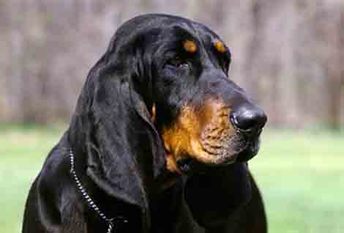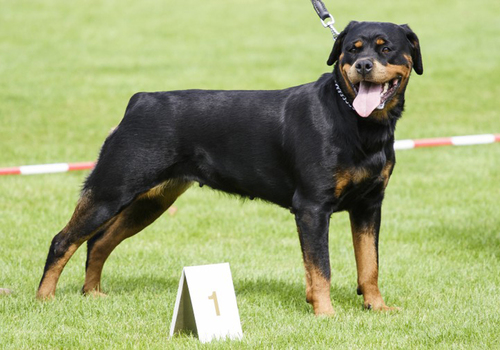The Rottweiler (affectionately called 'Rottie') originates in the Roman Empire, where it was used to herd cattle. The name derives from the small town of Rottweil, Germany. The Rottweiler nearly went extinct in the 1800's, but today it has come back in popularity and is used as a police dog, guards dog, herds dog, and tracker. It is a very strong, courageous, seemingly invulnerable breed. Famous fictional Rottweilers include the puppet Triumph the Insult Comic Dog from The Conan O' Brien Show and the family pet in Ferris Bueller's Day Off.
Today, the Rottweiler ranks 11th among the breeds registered by the American Kennel Club. That’s down quite a bit from the 1990s, when he was ranked No. 2 for two years in a row, but that’s just fine with Rottweiler people. They are satisfied to keep the breed as their own special secret.












